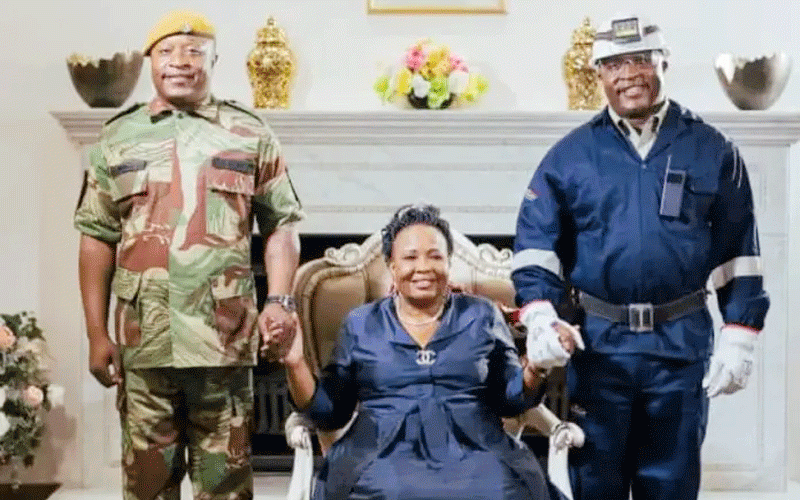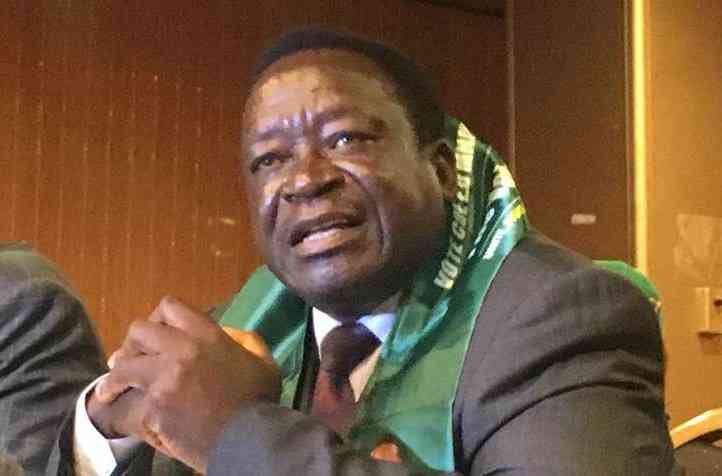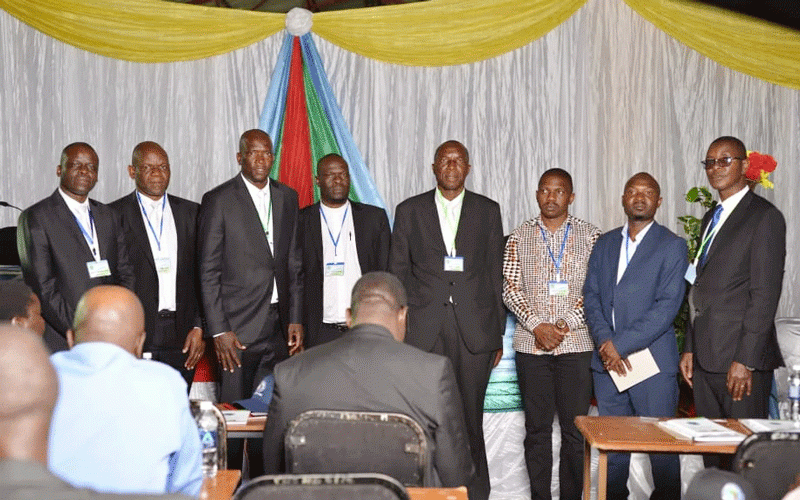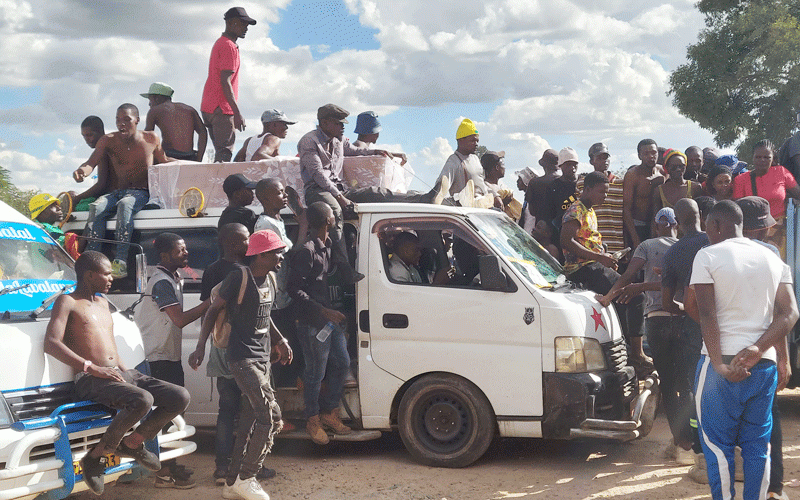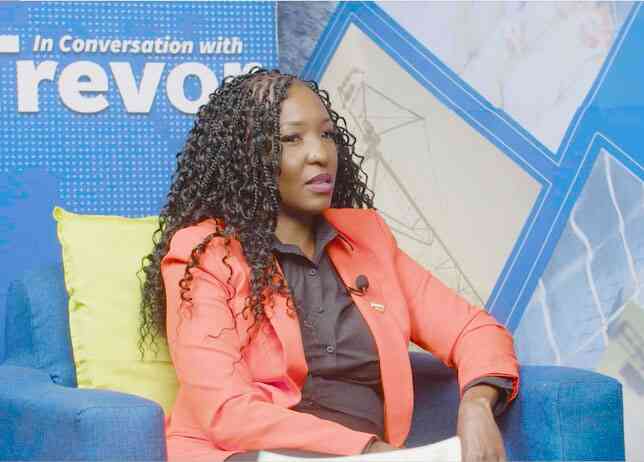
Zimbabwe Olympic Committee chief executive officer Marlene Chiedza Gadzirayi says going through cancer treatment gave her a new perspective on life and taught her “the spirit of detachment from things.’
Gadzirayi (MG) opened up about her battle with the disease on the platform In Conversation with Trevor, which is hosted by Alpha Media Holdings chairman Trevor Ncube (TN).
Below are excerpts from the interview
TN: Marlene Chiedza Gadzirayi. Welcome to conversation.
MG: Thank you Trevor. Thank you for having me.
TN: I like Chiedza, that's my formal name? That's your formal name?
MG: Marlene is my first name, but that's my formal name but at home I'm called Chiedza.
TN: It's a beautiful name Marlene. You have been through a lot and I'm delighted that you are not shy to come to a public platform of this nature and continue to share your story.
- School of sport: Who is in charge?
- Kuipers headlines Africa Triathlon Championships team
- Lady Cheetahs go on Olympic safari
- Zim junior tennis players off to Togo
Keep Reading
Let’s start in 2019 when you were diagonised with stage three colorectal cancer.
Talk to me about the day you received the news, the confirmation of what you might have feared.
MG: I think I'll just say actually first of all I never saw it coming because of the type of cancer. I had a lump like.
This was actually sort of pre 2019 years before I really was quite ill, self-diagnosed with chronic constipation and stuff like that.
So I just fast forward to the day that I got the news.
This was after I had gone through surgery, initial surgery and I thought I had piles and then I was discharged after about five days from hospital and then a week later a doctor called me back and said ‘are you free tomorrow,’ ‘I'd like you to come through so that we can have a chat.’
But I was so nervous and he called around 10 in the morning and then I think after an hour I said, ‘Doctor are you busy right now? Can I come now and then he says, ‘Sure come, I was supposed to have another surgery but now it's been moved to another day so yeah you can come through.’
So I drove back to his surgery and he said, ‘Oh yeah so remember we took a biopsy.’
And by the way I had no idea what a biopsy meant and I think the good and the bad part of it was that this doctor is very friendly, and so you know when someone delivers news to you with a smile, we can name him (Dr Kundiona)*.
He is a specialist you know and he says: ‘So I hope you are recovering well after the operation and all; so we got the results from the biopsy and it confirms that you actually have cancer.'
And I think at that moment everything else that he mentioned was quite a blur.
I don't remember what he said but it was about saying ‘Okay so you need to start treatment; you may need chemotherapy, you may need radiotherapy...
In the moment I was like cancer, me?
You know. It hit me very hard but then I held myself so well in those 10-15 minutes while I was in his room and he gave me some documentation, some referral letters.
After I left, I just drove out just a few metres away from the surgery and I parked and I started crying. It was so difficult for me.
It was really terrible news at that moment and immediately I was like ‘God why? ‘Why am I going through this? What has happened? Why me? Why now? Why cancer?
I had a myriad of questions about God.
This was even before I actually understood what colorectal cancer was, but just the word cancer is not easy to just accept and to just embrace the news at that time so it was difficult.
TN: So you are asking God ‘Why me and what answer do you get?
MG: You know in asking that question I think I had some lessons later on but you know I'm Catholic, born Catholic, learned at Catholic schools, and I was very active in the Catholic church and this is me who would go to church to mass Monday to Friday, Sunday to Friday.
I'm there.
I was in the Liturgy committee and I did the rooster for readers. I taught people to read the Bible in Shona.
I was on the fundraising committee. I was ‘Yeah, God this is me doing so much for you.’
Yeah, I have been here, you know. How do you let this happen to me? And so at that moment I didn't get any answers. I had more questions than anything.
TN: I suppose we'll get to a point where you get a sense that you get the answers, so you park you then drive home?
MG: Yes.
TN: Talk to me about that.
MG: I didn’t drive home. Actually I called my priest and I said, ‘I have just been diagnosed with cancer, but I don't want to tell my parents.
'I don't want to bother them, you know. I think I was really confused like ‘How do you hide a cancer diagnosis from your family.
And he actually then called my mother and told her the news.
This is what has happened. And so I actually didn't go home, they just agreed okay, ‘let's meet at church.’
So I went to church. I met my mother there. I was just crying and the priest was there, the assistant priest was there, and then you know, they just said ‘let's get into church, let's pray.’
For the first time I couldn't pray. I just got there and I just knelt and I was like really, I was angry and this is me asking, why and angry with God.
I was angry with God, I just knelt there. I saw my mom praying, I saw the priest praying, I was just looking up. I was looking at the ceiling.
I wrote about this and I said I was counting the number of light bulbs.
I looked at the, you know, the ceiling. I could not pray. A lot was happening in my head.
So after that, then we went home and I think we started trying to embrace and make of what it was.
TN: What was the diagnosis?
MG: The staging hadn't been done. It was just to say you get a biopsy. This is cancer.
Everything else is now in the hands of the oncologist. It was myself and my mother.
It took us a few days to actually tell my father because I didn't know how to tell him, and what we were supposed to say to him.
My mom is a nurse by profession so it was a little easier to have her, but then to tell my father and the rest of the family it was quite difficult.
So I was gauging, okay, let me tell my older sister.
TN: I find it fascinating that you are finding it difficult to tell them that you have been diagnosed with cancer instead of the other way around, ‘How will they receive this news?
Did you get a reconciliation with God and how quickly did that happen?
MG: I think because I continued going to church and even during treatment.
Every Sunday was church day and even during some mornings I would still continue going for morning mass and I didn't really relinquish a lot of my duties and so because I sort of had to be present, I was like remain in that realm, remain in God's presence and maybe he will reveal something to you.
But it took time. People would pray, people would just come and visit and it was just so difficult for me to really understand, but I think it was during those moments that I was not working.
I was just at home. I think music actually sort of changed me.
You know when you go through something and you listen to different songs, they have a different meaning.
And I remember one of the songs was ‘the God in the valley is still God on the mountain.’
So you know when things go wrong, he will make them right. I listened to Mai Charamba’s song.
This song came towards the end of treatment where one of the lines is so (Vaifunga kuti andirarame, pane vakataura kuti ndiriguva), but here I am.
I started, you know, listening to that and as much as I'm Catholic I listened a lot to Joe Austin sermons.
I still do. His mother was diagnosed with terminal cancer.
So when I started listening to those sermons and I realised okay this can happen to anyone.
You don't choose and also at the same time the answer of my why question or my being angry at God, I learned that we don't do favours to God.
You cannot bribe God. So you cannot say, but I did this, I was born into the Catholic Church, I went to a Catholic school where if we are not in class, we are praying.
That’s what I always say, you don't bribe God. His grace is sufficient for everyone and whatever you go through, he knows. And for every season, there is something.
TN: Talk to me Chiedza about the lessons that you extracted, in particular, at that moment, the finding out, if there's somebody out there who is watching you right now, who's going through what you are going through.
What lessons did you extract from that? That season of why me God, playing music, going back to church to pray and so forth. What guidance would you give others? What did you extract from that?
MG: One of the statements that one of the priests said is (Mwari anoita zvaanoita nevanhu vake).
I think that is a very powerful statement where there is nothing that God doesn't know that's happening to us, and for you to go through something you have to go through it and sometimes I then realise maybe you went through that mountain so that others can use your story as an inspiration.
My reconciliation also with God was, you know, you don't have to stretch yourself, you don't have to try and impress me, you cannot impress God.
So you cannot because you know there are times when I’ll be sick but then I'm like, I need to go for morning mass.
I need to check if the readers are in order. I need to check if the chairs are in order. I need to do the announcements.
I need to look at the young adults. I had a young adults group but then, no God is saying ‘hold on relax, I have got this, I have got, you know something is cooking I will make things right and I think that was a very big lesson for me.’
I suppose the big lesson from that is that our lives are not ours. They are God’s. It's God's life. He created us for a purpose and he will do as he wishes with us.
TN: You then went through chemotherapy. That can't be easy.
MG: I think for me I said cancer is a definition of pain and with cancer treatment is different from any other treatment or any sickness.
If you have a sore throat you can take some medication and within a few hours, your throat feels better, but with chemotherapy and radiotherapy it's darkest before dawn.
You start feeling worse, and there are times when I forgot what I was really being treated for because there was always a ripple effect.
The medication ,the chemotherapy sometimes would make me have diarrhoea and then I needed a prescription for the diarrhoea to stop and those prescriptive tablets sometimes would then cause constipation and then I needed to get laxatives to get rid of the constipation.
Meanwhile, I am in so much pain.
Having to go for radiotherapy was also very intense for me because you're not treated while you are at home. You have to go to the machine.
So even if I did not want to go every Monday to Friday, I had to be there at 10am. I couldn't sit properly, so I just lay down and then I had to get in and the side effects would be happening there.
I was throwing up. I had no appetite. I lost my sense of taste and sometimes I'll just be crying all night and to be honest with you there are times when I just say God I'm done I just don't want to wake up tomorrow.

